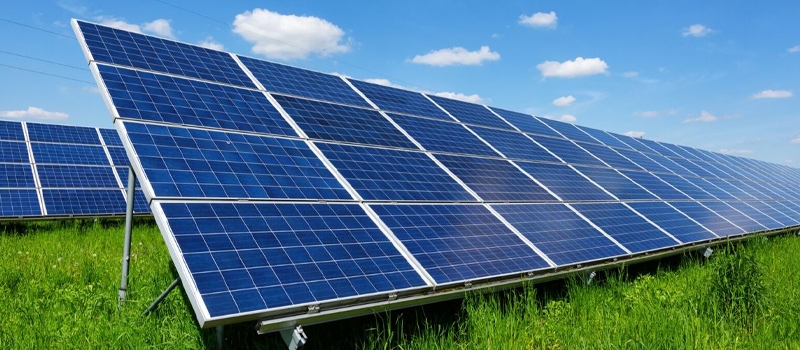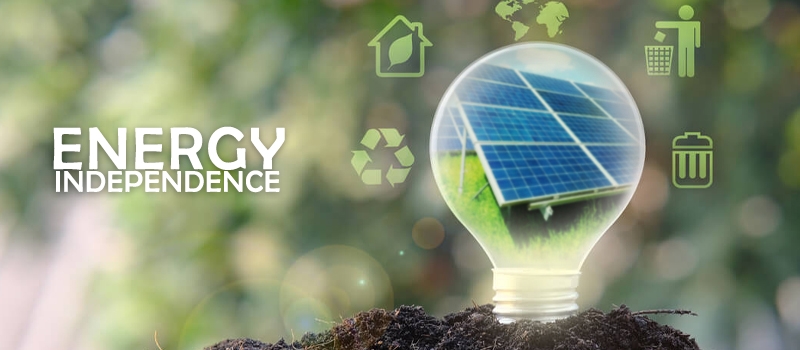Energy issues have always been a top concern for countries around the world. Fluctuations in energy supply have had a big impact on the global economy. Solar energy is a clean and renewable source of energy that's becoming an important option for countries looking to achieve energy independence and reduce emissions. In this blog, we'll explore how solar independence can help countries move away from energy dependence and embrace a cleaner future.
The Benefits of Solar Energy
Back in the 1970s, the Organization of Petroleum Exporting Countries (OPEC) oil embargo caused a global fuel crisis that led to skyrocketing oil prices and an economic recession. This event made the world realize the need for energy independence. Now, the Russian-Ukrainian military conflict has once again led to an increase in global crude oil prices, further emphasizing the importance of reducing dependence on traditional energy sources. This dependence isn't just about a country's economic security, but also its sovereignty and stability.
Solar energy is also the most cost-effective and readily accessible source of electricity, making it an attractive option for many businesses and individuals:
- Solar energy is everywhere and can be used in cities and villages alike.
- Solar energy is becoming a more and more competitive energy option thanks to its maturity and decreasing cost.
- Solar energy doesn't need any fuel, it's not affected by market fluctuations or geopolitics, and it can be used with wind turbines or other clean energy sources.
How Solar Energy Can Help Us Become More Independent?
- Solar energy is a universal resource, and almost every country can use it in one of its regions. By tapping into solar energy, countries can reduce their dependence on imported energy sources like oil and natural gas and increase their energy self-sufficiency.
- The distributed nature of solar power means businesses and individuals can install solar power systems on their own rooftops or ground to achieve self-sufficiency and reduce their dependence on a centralized power grid. This also creates local jobs through construction and maintenance.
- Solar power systems can be hooked up to the existing grid to provide extra power. On sunny days, solar power can meet a lot of the demand for electricity, which means we don't have to rely on conventional energy sources as much.
- To help solar energy grow, governments have come up with a bunch of helpful policies. The United States, for instance, has the "investment tax credit" (ITC) to get businesses and individuals to invest in solar power projects, which helps us get closer to energy independence.
Many countries around the world have had success using solar energy. Germany, for instance, has been promoting solar energy and other renewable energy through its "energy transition" (Energiewende) policy. China is the world's top producer of solar panels and ranks among the top countries in installed solar power capacity. The U.S. solar industry is also growing fast, especially in California, Nevada, and Texas. The sunny weather in these areas makes solar power generation easy, and many businesses and households have installed solar energy system.
The Future of Solar Energy

Technology Innovation
The solar industry is being driven forward by new innovations in technology. For instance, new types of solar cells, such as chalcogenide cells and thin-film technology, could help to improve energy conversion efficiency and reduce costs, which would make solar power even more affordable. There are also a number of technologies that can improve solar panel performance in low-light conditions, which could help to make solar power more reliable in less favourable weather. You can find out more about this here: How Solar Energy Works on Cloudy Days?
Energy Storage Solutions
One of the main challenges to using solar power more widely is that it's not always available. But new energy storage technologies, like lithium-ion batteries and flow batteries, are making solar power more reliable. This means that solar systems can now provide continuous power at night or on cloudy days. If you live in an area where there are a lot of power outages, solar power could be a good solution for you.
Integration and Application Diversification
Solar technology is being used in buildings, vehicles, and consumer products to make energy. Building-integrated solar is putting solar cells into parts of a building, like the roof, windows, and façade. This integration not only makes electricity, but also looks good and works well in the building.
Solar roof tiles and solar cars are just a couple of examples of how solar is being used in different ways. If you're looking to make the most of your land, solar carports could be a great option.
International Cooperation and Global Deployment
As the threat of global climate change grows, more and more countries are looking to invest in renewable energy sources like solar power. The International Renewable Energy Agency (IRENA) is working to promote the global deployment of renewable energy, including solar energy. IRENA helps countries develop and utilize solar energy resources by providing policy advice, technical support, financial coordination, and capacity building.
International financial institutions and private investors can help fund solar energy projects and spread the word about solar energy technologies. For instance, organizations like the World Bank, the Asian Development Bank, and the International Energy Agency offer loans, grants, and investments to support the development and construction of solar energy projects.
What Can We Do?

A solar panel system from the PowerHome online store can give your home or business a backup source of electricity that won't go up in price. Solar systems can't fix all the problems with the power grid. But we think it's a good first step toward a smarter, cleaner, and more adaptable grid.
As technology keeps getting better and costs keep dropping, more and more countries will choose solar as their main energy source to become more independent and sustainable. By reducing our dependence on fossil fuels, promoting distributed power generation and grid integration, as well as policy support and market mechanisms, solar energy is helping countries to embark on the path to energy independence and laying the foundation for building a cleaner and greener future.
(1).png)

(1).png)